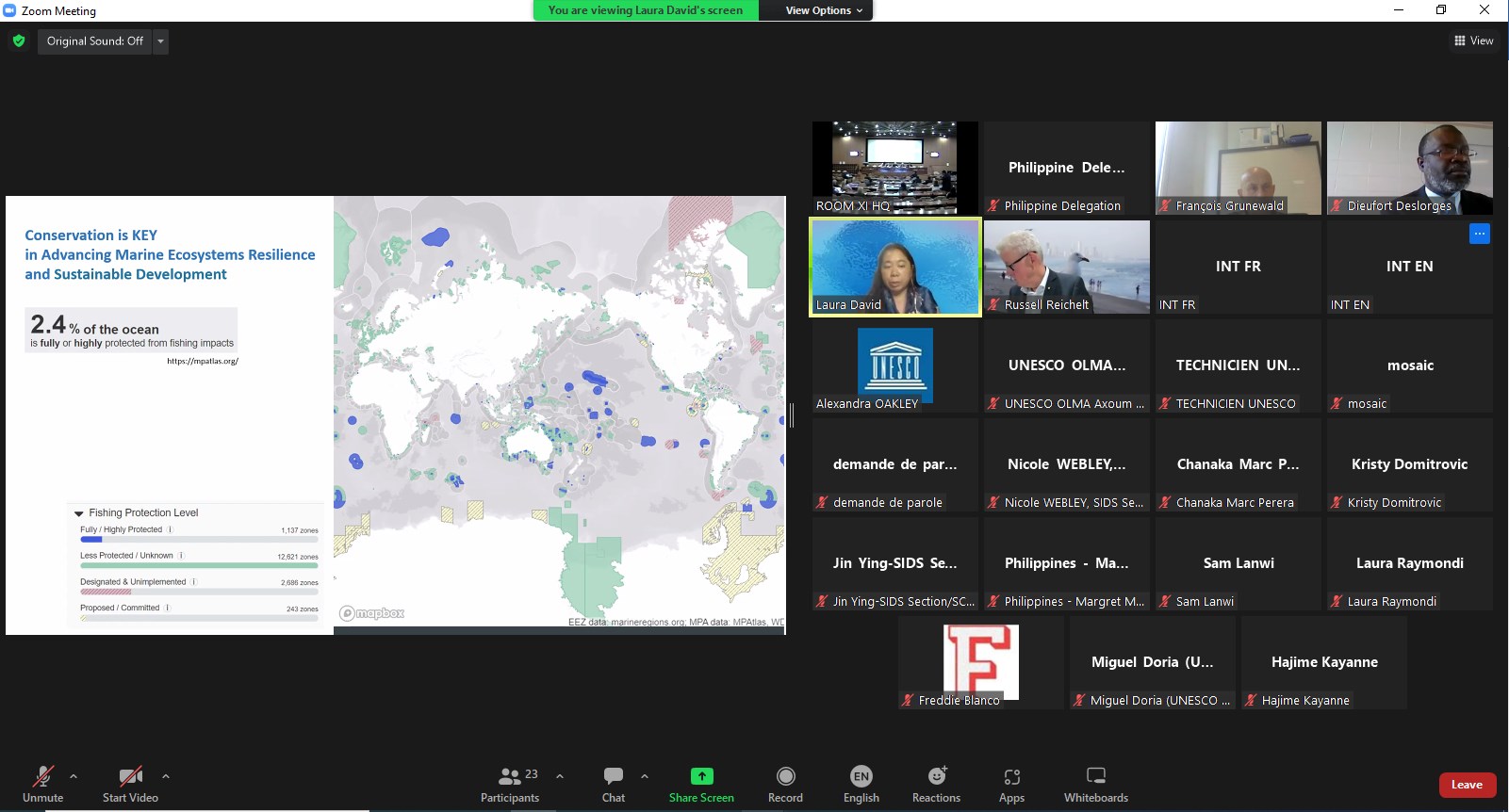PH CELEBRATES WORLD OCEANS DAY WITH SIDS

08 June 2022 – In celebration of the World Oceans Day, the Small Island States (SIDS) and the Group of Friends of SIDS in UNESCO organized a round table on “Climate Change and Resilience: Bringing Science and Technology to the Ocean in a Manner Consistent with Traditional Knowledge.” PH is a member of the 49-member Group of Friends of SIDS.
The roundtable was held in hybrid format, with the participation of experts in the field namely, Mr. Virginijus Sinkevicius (European Commissioner for the Environment, Oceans and Fisheries), Mr. Vladimir Ryabinin (Assistant Director General of UNESCO, Executive Secretary of the Intergovernmental Oceanographic Commission), Dr. Russel Reichhelt (Representative of the Australian Prime Minister on the High Level Panel for Sustainable Ocean Economy), Dr. Amr Zakaria (President of the National Institute for Oceans and Fisheries of Egypt), Mr. Francois Grunewald (Director for Monitoring and Anticipation of the Emergency Rehabilitation and Development of France), Dr. Hajime Kayanne (Professor in the Graduate School of Science of the University of Tokyo), Mr. Nicolas Imbert (Executive Director of Green Cross France and Territories) and Dr. Laura David (Co-Chair of the National Committee on Marine Sciences of the Philippines).

Dr. Laura David shared that per latest studies, only 2.4% of the ocean is fully or highly protected from fishing impacts. She emphasized that in advancing marine ecosystems resilience and sustainable development, conservation is key. Towards this end, the Philippines is currently 1) including climate change as part of its risk assessment in
establishing marine protected areas (MPAs) 2) including multiple habitats in MPA establishment in order to increase biodiversity in MPAs 3) mitigating stress on the environment by considering sources of sediment, nitrogen and phosphorous and 4) conducting connectivity studies to provide the scientific basis for the prioritization, design
and establishment of MPA networks.
She shared that there is a need to re-imagine partnerships with local stakeholders to give more voice to traditional knowledge. Conservation should be framed against global issues but should maintain local relevance. Science needs to be better communicated so that it has relevance on the ground. Finally, there is a need to emphasize that nature-based adaptation is sustainable and can lead to true resilience – the goal of not just surviving but finding a way to thrive in the new normal. END


